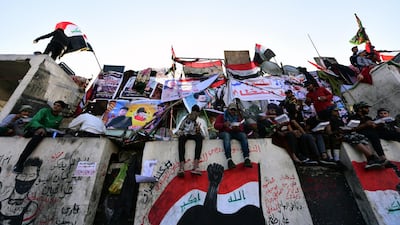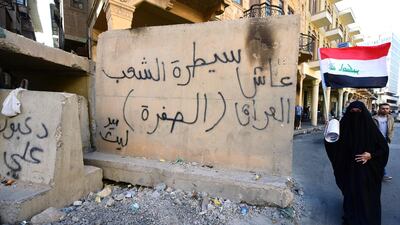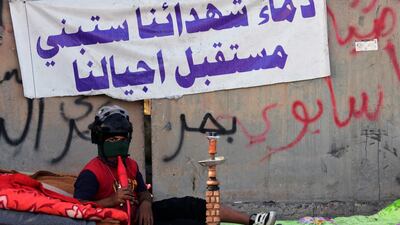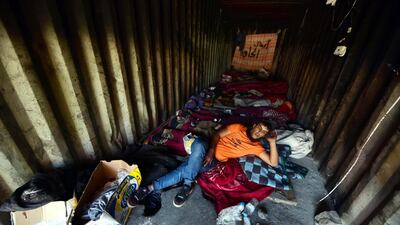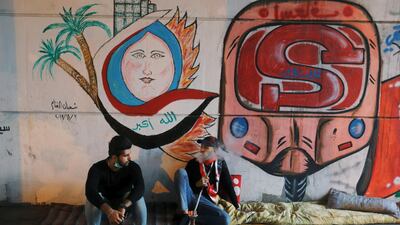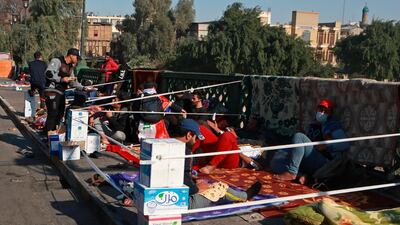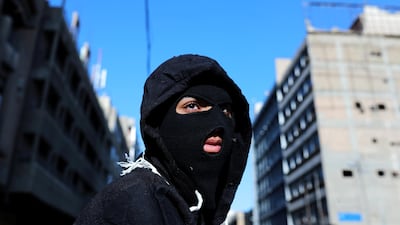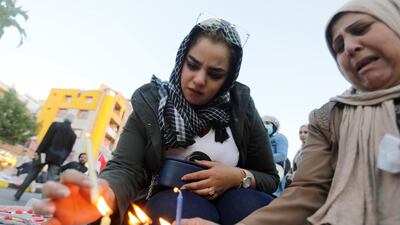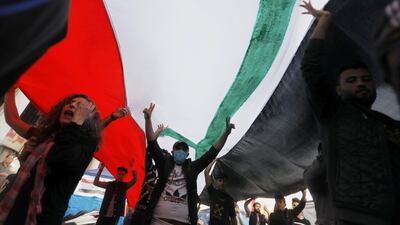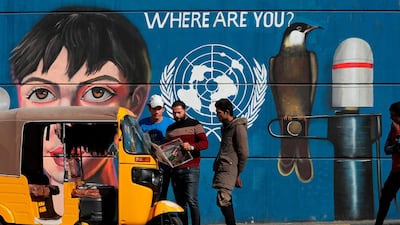Iraqi security forces surrounded schools across Baghdad on Thursday to stop pupils taking part in anti-government protests, as eight people were killed in overnight clashes in the capital.
Iraqi officials said 90 people were injured in the worst unrest seen in the country in recent days.
One was killed when security forces hurled sound bombs at crowds of protesters on the Sinak bridge late on Thursday, officials said.
Thousands of Iraqis in Baghdad and across the south have been protesting since October 1 against corruption and poor public services.

Pupils and students in Baghdad and across southern cities have been skipping classes to take part in the protests, despite the government ordering schools and universities to operate normally.
Reports suggest that Iraqi intelligence services have forced the schools to given them records of attendance for teachers and pupils to see who has been absent.
An Education Ministry spokesman confirmed troops were posted around schools in the capital to prevent sit-ins or road closures.
Police tried to stop people from taking part in the protests, Muamal Al Shumari, who works with the Iraqi student union, told The National.
"They were in front of us," Mr Al Shumari said. "They stood in front of all the schools and they forbid them from going to the protests and from sit-ins."
He saw police accuse teachers and pupils of taking part in the protests.
"They asked the teachers, 'Why did you do this? Why would you go out?'" Mr Al Shumari said.
Kawthar Hussein, 18, a high school pupil, said that when she and her colleagues tried to have their daily sit-in at school, police stopped them and their teachers.
“So we went and did the sit-in at the Turkmani club nearby the school. We all went, the students and the teachers," Ms Hussein said. "There were so many people there."
She expressed disdain at the police officers' attempts to prevent the sit-in.
“Who are they to stop us?” Mr Al Shumari asked. “We just took another path to continue the sit-in.”
In many areas of the capital and the south, pupils and teachers have been at the forefront of demonstrations.
Protest hot spots such as Nasiriyah, Kut, Hillah and Diwaniyah have not had steady school attendance in weeks.
The movement has been the deadliest in decades but also the most widespread, with sit-ins also outside government offices and public squares.
More than 330 people have been killed as security forces responded to the mostly peaceful demonstrations by firing live ammunition, rubber bullets and military-grade tear gas canisters at protesters.
In the latest deaths, a person was killed on Wednesday night when security forces fired live rounds to stop demonstrators from cross Baghdad’s Ahrar Bridge.
Another was killed in clashes with the forces on the city’s Sinak Bridge, a security official said.
Two wounded protesters later died in hospital, one from being shot in the head and the other struck in the head by a tear gas canister, police said.
Six of those injured had gunshot wounds.
Rights groups have accused security forces of firing the canisters directly at protesters instead of up in the air.
They say that canisters can pierce skulls or chests when shot at close range. Advocacy groups have documented about two dozen deaths from these types of injuries among Iraqi protesters.
The protests are the largest in Iraq since the fall of Saddam Hussein in 2003.
Demonstrators have been occupying parts of Baghdad’s three main bridges, Sinak, Ahrar and Jumhuriya, which lead across the Tigris River to the heavily fortified Green Zone in the west of the capital.
Officials in Baghdad fear the demonstrators could use the Sinek bridge to reach the Iranian embassy, or cross the adjacent to Ahrar bridge further north to protest at the central bank and other government buildings.
Protesters have condemned Tehran for propping up a corrupt and inefficient Iraqi government, and accuse Iran of backing the use of violence against them.
They are also calling for the removal of Prime Minister Adel Abdul Mahdi's government and an overhaul of Iraq’s political system to uproot an entrenched elite.
